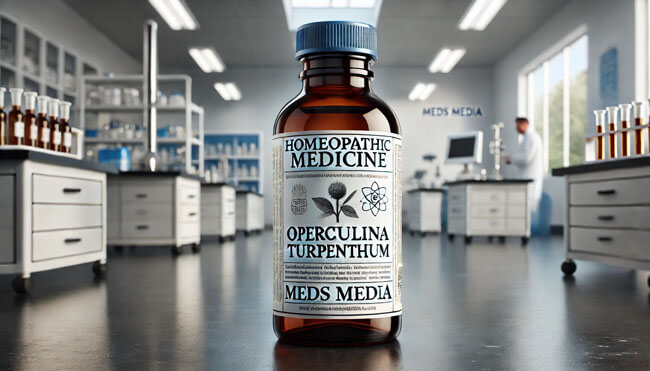PRUNUS SPINOSA ( PRUN ) Homeopathic Uses & Treatment Insights
Prunus Spinosa, commonly known as Blackthorn, is a significant remedy in homeopathy, noted for its potent action on the urinary organs, neuralgias, and edema. It is widely employed for specific conditions such as ciliary neuralgia, ascites, and dysuria, providing relief for an array of symptoms, particularly those affecting the head, eyes, abdomen, and respiratory system. In this article, we will explore the therapeutic benefits of Prunus Spinosa, structured for a clearer understanding of its applications in homeopathy.
Symptoms Addressed by Prunus Spinosa:
Materia Medica Insights
1. Head
Prunus Spinosa is a powerful remedy for headaches characterized by intense, pressing pain that feels as though the skull is being “pressed apart.” The sensation typically starts beneath the skull and can radiate from the frontal bone to the back of the head (occiput). These headaches may also be accompanied by sharp, shooting pains through the brain, making the remedy particularly beneficial for those suffering from severe neuralgic pains.
Homeopathic Insight:
The bursting sensation in the right eyeball is a hallmark symptom. This sensation is described as if the eyeball would explode, and the pain often shoots through the brain. Individuals experiencing toothaches may also benefit from Prunus Spinosa, particularly when the pain is piercing and feels as though the teeth are being forcibly removed. The discomfort worsens when exposed to warmth, such as consuming warm foods or drinks.
2. Eyes
Prunus Spinosa demonstrates strong action on the eyes, particularly in cases of ciliary neuralgia and irido-choroiditis. It addresses conditions where the eyes feel as though they are bursting from pressure. The characteristic pain typically manifests as lightning-like shooting from the right eyeball, radiating through the brain to the back of the head. It is also noted for its use in conditions involving opacity of the vitreous humor, making it valuable in specific eye disorders.
Homeopathic Insight:
Prunus Spinosa is beneficial in cases where sudden, severe pain strikes the left eye, with relief experienced through lachrymation (tear flow). Its ability to treat irido-choroiditis (inflammation of the iris and choroid) further highlights its efficacy in treating ocular ailments. The remedy also provides relief from the bursting pain associated with certain eye conditions, offering significant relief for those experiencing ocular pressure.
3. Abdomen and Urinary Organs
Prunus Spinosa is particularly useful in addressing abdominal discomfort and urinary issues. It is known to relieve cramp-like pains in the bladder region, which worsen upon walking. Ascites, a condition involving fluid accumulation in the abdomen, may also be alleviated by this remedy.
Homeopathic Insight:
The remedy excels in treating neuralgic dysuria (painful or difficult urination caused by nerve irritation). One of its hallmark symptoms is a sensation that urine reaches the tip of the glans penis but then returns, causing sharp urethral pain. It is effective for patients who experience a strong urge to urinate but must press for a long time before urine finally appears, indicating tenesmus of the bladder (persistent, ineffective urge to urinate).
4. Rectum
Prunus Spinosa is indicated for patients who suffer from hard, nodular stools, which are associated with rectal pain. This discomfort is often described as if a sharp, angular object is being pressed inward. Additionally, the remedy can relieve burning sensations in the anus, particularly following episodes of slimy diarrhea.
Homeopathic Insight:
The angular and sharp nature of the pain in the rectum is a key symptom addressed by Prunus Spinosa. This remedy is useful for treating digestive discomfort that affects bowel movements, providing relief from the burning and pressure sensations often experienced after diarrhea.
5. Respiratory System
Prunus Spinosa can be effective in managing respiratory symptoms, especially in cases where wheezing occurs during walking. It also addresses oppression of the chest, often accompanied by anxious, short respiration. Angina pectoris (chest pain caused by reduced blood flow to the heart) and fury-like heart palpitations that worsen with slight motion can be treated with Prunus Spinosa.
Homeopathic Insight:
The remedy’s benefits extend to the treatment of angina, providing relief from chest pain and helping alleviate the furious beating of the heart that can occur with minimal exertion. Prunus Spinosa’s action on the respiratory system makes it a valuable remedy for those experiencing anxiety and shortness of breath.
6. Skin and Peripheral Nervous System
Prunus Spinosa is beneficial for skin conditions such as herpes zoster and itching on the tips of the fingers. This itching is often described as though the fingers were frozen, a sensation that Prunus Spinosa effectively alleviates. It is also used in the treatment of dropsy (swelling caused by fluid retention), particularly in cases of edema affecting the ankles and feet.
Homeopathic Insight:
This remedy’s ability to alleviate itching and address the painful symptoms associated with herpes zoster highlights its role in supporting skin and peripheral nerve health. Additionally, Prunus Spinosa can reduce swelling and edema, particularly in the lower extremities, helping those with fluid retention and swelling in the ankles and feet.
7. Relationship with Other Remedies
Prunus Spinosa can be compared with several other homeopathic remedies that act on similar conditions:
- Laurocerasus: Useful for sore throat, pressure behind the sternum, and sticking pain in the rectum.
- Prunus Virginiana (Wild Cherry): Acts as a heart tonic, relieving symptoms of dilated ventricles, chronic bronchitis, and irritable heart. It is especially helpful for elderly patients with weak digestion and night-time cough.
- Pyrus (Mountain Ash): Alleviates neuralgic and gouty pains and is beneficial for conditions affecting the eyes, bladder, heart, and uterus.
8. Dosage and Potency
The typical dosage of Prunus Spinosa ranges from the third to the sixth potency, depending on the severity of the symptoms and the individual’s overall condition. It is advisable to consult with a professional homeopath to determine the appropriate potency and dosage.
Select Your Homeopathic Medicine Dose and Potency
Potency Selection Guide
Relationship of Remedies
Why our homeopathy guides are different
We break down classical homeopathic ideas, remedy personalities, and prescribing tips into clear explanations so students and patients can follow along without jargon.
This homeopathy site is for study and education only. For any health concern, always work with a qualified doctor or registered homeopathic practitioner.
Similar Posts You may also like

NITRO MURIATICUM ACIDUM HOMEOPATHIC MATERIA MEDICA | Uses, Symptoms & Benefits Guide

NITRI SPIRITUS DULCIS HOMEOPATHIC MATERIA MEDICA | Uses, Symptoms & Benefits Guide

NUPHAR LUTEUM HOMEOPATHIC MATERIA MEDICA | Uses, Symptoms & Benefits Guide

NUX MOSCHATA HOMEOPATHIC MATERIA MEDICA | Uses, Symptoms & Benefits Guide

NUX VOMICA HOMEOPATHIC MATERIA MEDICA | Uses, Symptoms & Benefits Guide

NYCTANTHES ARBOR TRISTIS HOMEOPATHIC MATERIA MEDICA | Uses, Symptoms & Benefits Guide

OCIMUM CANUM HOMEOPATHIC MATERIA MEDICA | Uses, Symptoms & Benefits Guide

OENANTHE CROCATA HOMEOPATHIC MATERIA MEDICA | Uses, Symptoms & Benefits Guide

OLEUM ANIMALE AETHEREUM: HOMEOPATHIC MATERIA MEDICA – Symptoms Guide

OLEUM JECORIS ASELLI: HOMEOPATHIC MATERIA MEDICA – Symptoms Guide

OLEUM SANTALI: HOMEOPATHIC MATERIA MEDICA – Symptoms Guide

OLEANDER: HOMEOPATHIC MATERIA MEDICA – Symptoms Guide

ONISCUS ASELLU: HOMEOPATHIC MATERIA MEDICA – Symptoms Guide

ONOSMODIUM VIRGINIANUM: HOMEOPATHIC MATERIA MEDICA – Symptoms Guide

OPIUM: HOMEOPATHIC MATERIA MEDICA – Symptoms Guide

OPERCULINA TURPENTHUM: HOMEOPATHIC MATERIA MEDICA – Symptoms Guide

OPUNTIA FICUS: HOMEOPATHIC MATERIA MEDICA – Symptoms Guide
